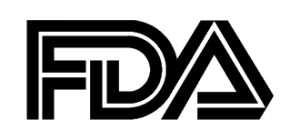 The U.S. Food and Drug Administration (FDA) approved iobenguane I 131, an intravenous radiotherapeutic, for the treatment of unresectable, locally advanced or metastatic pheochromocytoma or paraganglioma in adult and pediatric patients 12 years and older. Patients must test positive for the norepinephrine transporter (as determined by an iobenguane scan), and who require systemic anticancer therapy.
The U.S. Food and Drug Administration (FDA) approved iobenguane I 131, an intravenous radiotherapeutic, for the treatment of unresectable, locally advanced or metastatic pheochromocytoma or paraganglioma in adult and pediatric patients 12 years and older. Patients must test positive for the norepinephrine transporter (as determined by an iobenguane scan), and who require systemic anticancer therapy.
Pheochromocytoma and paraganglioma are neuroendocrine cancers that arise from cells in and around the adrenal glands. These glands are located right above the kidneys and make hormones including stress hormones called epinephrines and norepinephrines. Pheochromocytomas increase the production of these hormones, leading to hypertension (high blood pressure) and symptoms such as headaches, irritability, sweating, rapid heart rate, nausea, vomiting, weight loss, weakness, chest pain or anxiety. When this type of tumor occurs outside the adrenal gland, it is called a paraganglioma. Metastatic pheochromocytoma and paraganglioma may result in unresectable disease with a poor prognosis, including a five-year survival rate as low as 12%. Treatment options for patients with this disease type were very limited prior to this approval.
are located right above the kidneys and make hormones including stress hormones called epinephrines and norepinephrines. Pheochromocytomas increase the production of these hormones, leading to hypertension (high blood pressure) and symptoms such as headaches, irritability, sweating, rapid heart rate, nausea, vomiting, weight loss, weakness, chest pain or anxiety. When this type of tumor occurs outside the adrenal gland, it is called a paraganglioma. Metastatic pheochromocytoma and paraganglioma may result in unresectable disease with a poor prognosis, including a five-year survival rate as low as 12%. Treatment options for patients with this disease type were very limited prior to this approval.
“Many patients with these ultra-rare cancers can be treated with surgery or local therapies, but there are no effective systemic treatments for patients who experience tumor-related symptoms such as high blood pressure,” said Richard Pazdur, M.D., director of the FDA’s Oncology Center of Excellence and acting director of the Office of Hematology and Oncology Products in the FDA’s Center for Drug Evaluation and Research. “Patients will now have an approved therapy that has been shown to decrease the need for blood pressure medication and reduce tumor size in some patients.”
“As the first FDA approved therapy for unresectable, locally advanced or metastatic pheochromocytoma or paraganglioma who require systemic anticancer therapy, iobenguane I 131 provides a new treatment option for physicians and their patients,” said Mark Baker, Chief Executive Officer of the drug manufacturer Progenics. “We are extremely grateful to the patients, their families and the investigators who participated in the clinical development program over many years.”
The efficacy of iobenguane I 131 was shown in a single-arm, open-label, clinical trial in 68 patients that measured the number of patients who experienced a 50 percent or greater reduction of all

antihypertensive medications lasting for at least six months. This endpoint was supported by the secondary endpoint, overall tumor response measured by imaging. The study met the primary endpoint, with 17 (25 percent) of the 68 evaluable patients experiencing a 50 percent or greater reduction of all antihypertensive medication for at least six months. Overall tumor response was achieved in 15 (22 percent) of the patients studied.
The most common severe side effects reported by patients receiving iobenguane I 131 in clinical trials included low levels of white blood cells (lymphopenia), abnormally low count of a type of white blood cells (neutropenia), low blood platelet count (thrombocytopenia), fatigue, anemia, increased blood clotting, nausea, dizziness, hypertension and vomiting.
As it is a radioactive therapeutic agent, iobenguane I 131 can cause serious side effects including:
- Risks from radiation exposure
- Bone marrow problems
- Other cancers (myelosuppression and secondary malignancies)
- Thyroid problems (hypothyroidism)
- Elevations in blood pressure
- Kidney problems (renal toxicity)
- Respiratory problems (pneumonitis)
- Pregnancy risks (embryo-fetal toxicity)
- Fertility problems.
- Please see Full Prescribing Information.
The FDA granted the approval of iobenguane I 131 to Progenics Pharmaceuticals, Inc.
